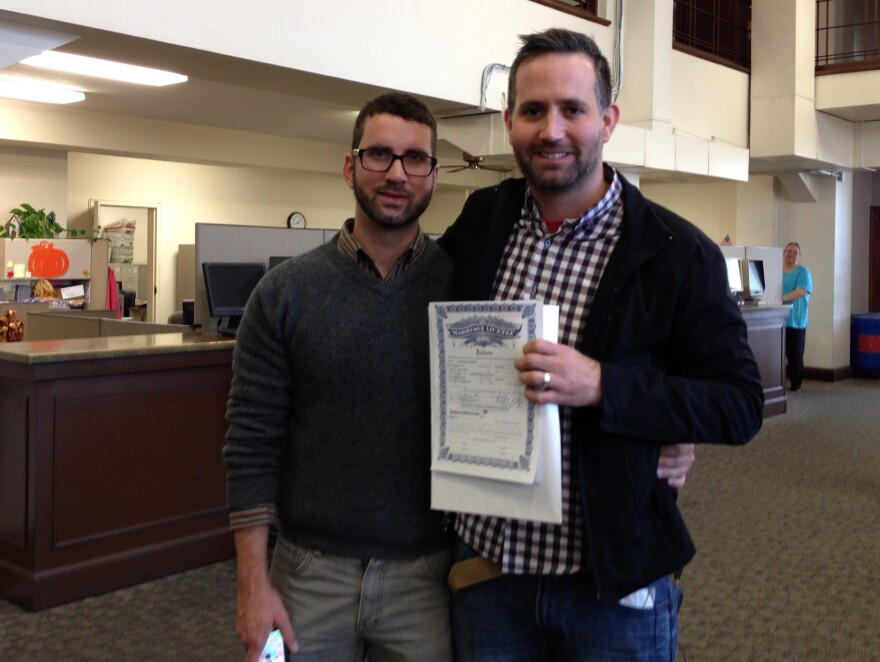What does the U.S. Supreme Court decision on extending marriage benefits to same-sex couples, expected in late June, mean for Missouri and Kansas?
For months, the hodgepodge of counties where gay couples may – or may not – get a marriage license in both states has been confusing. That’s thanks to numerous court decisions on both sides of the state line. Most of the rulings overturned laws that bar gay couples from marrying, so licenses have been allowed in some counties.
(View our timeline of the many marriage decisions in both Kansas and Missouri here.)
Those state bans on same-sex unions are at the heart of what the high court will ultimately rule on, said Doug NeJaime, a law professor at the University of California-Irvine. The decision before the court involves four states — Ohio, Michigan, Kentucky and Tennessee — within the 6th U.S. Circuit Court of Appeals.
“If we get a Supreme Court decision that says the bans in those 6th Circuit states are unconstitutional, that’s going to apply to the bans in Kansas and Missouri,” he said, “and all of those state bans will be struck down and same-sex couples should be able to marry in those states.”
If the high court goes the other way and rules that there is no fundamental right to marriage for gay couples, state officials in Kansas and Missouri will go back to enforcing those bans. Then the battle will go back to the ballot box, NeJaime said.
“It would be up to voters in those states to eventually overturn the bans, which I think would happen in those states at some point within the next decade,” he said.
Most polls show support for marriage equality, with the latest CNN poll showing 63 percent of Americans saying that same-sex couples have a constitutional right to marry.
Meanwhile, attorneys general in both Kansas and Missouri continue to pursue state-funded legal challenges to the marriage bans.



